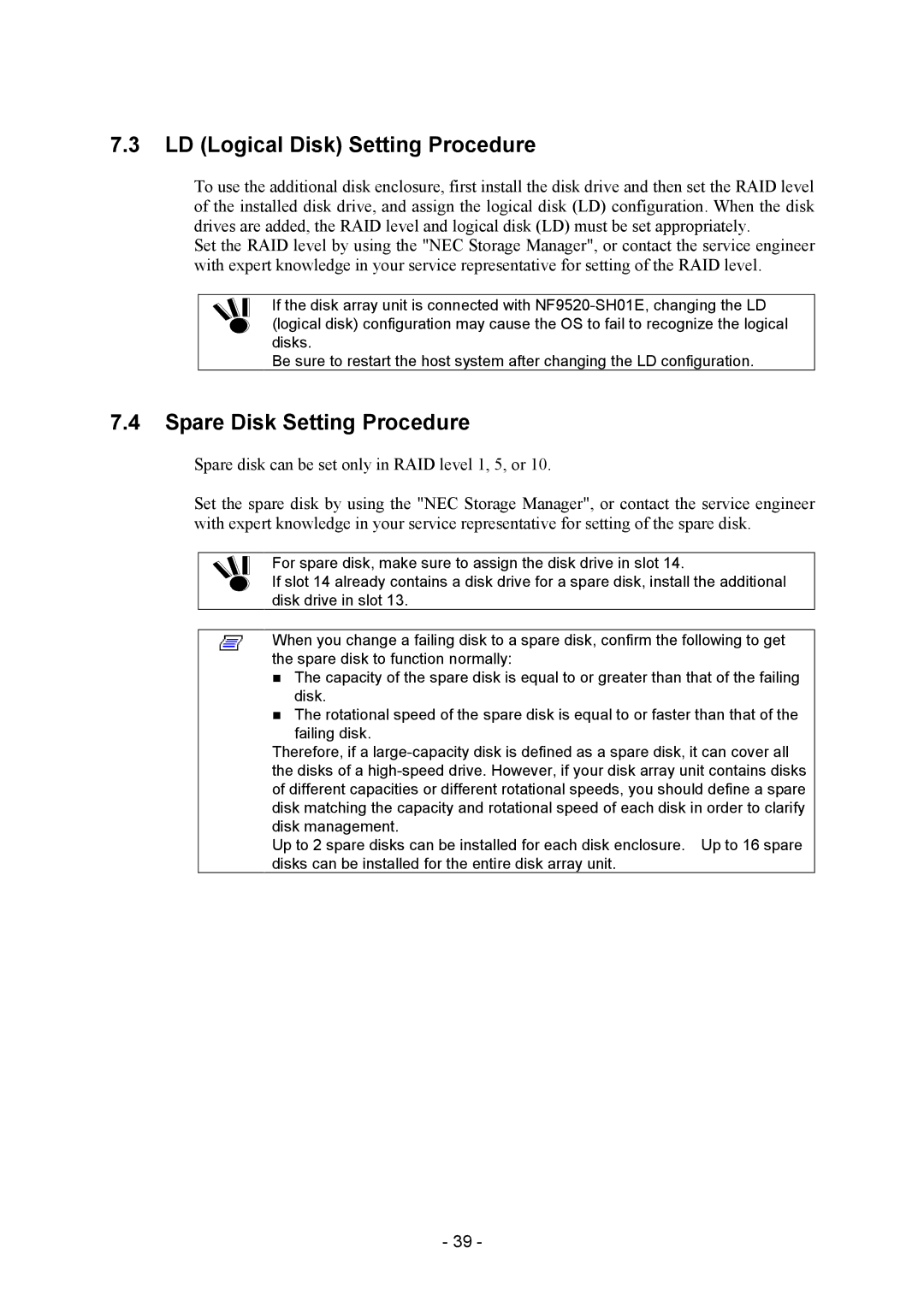
7.3LD (Logical Disk) Setting Procedure
To use the additional disk enclosure, first install the disk drive and then set the RAID level of the installed disk drive, and assign the logical disk (LD) configuration. When the disk drives are added, the RAID level and logical disk (LD) must be set appropriately.
Set the RAID level by using the "NEC Storage Manager", or contact the service engineer with expert knowledge in your service representative for setting of the RAID level.
If the disk array unit is connected with
Be sure to restart the host system after changing the LD configuration.
7.4Spare Disk Setting Procedure
Spare disk can be set only in RAID level 1, 5, or 10.
Set the spare disk by using the "NEC Storage Manager", or contact the service engineer with expert knowledge in your service representative for setting of the spare disk.
For spare disk, make sure to assign the disk drive in slot 14.
If slot 14 already contains a disk drive for a spare disk, install the additional disk drive in slot 13.
When you change a failing disk to a spare disk, confirm the following to get the spare disk to function normally:
The capacity of the spare disk is equal to or greater than that of the failing disk.
The rotational speed of the spare disk is equal to or faster than that of the failing disk.
Therefore, if a
Up to 2 spare disks can be installed for each disk enclosure. Up to 16 spare disks can be installed for the entire disk array unit.
- 39 -
